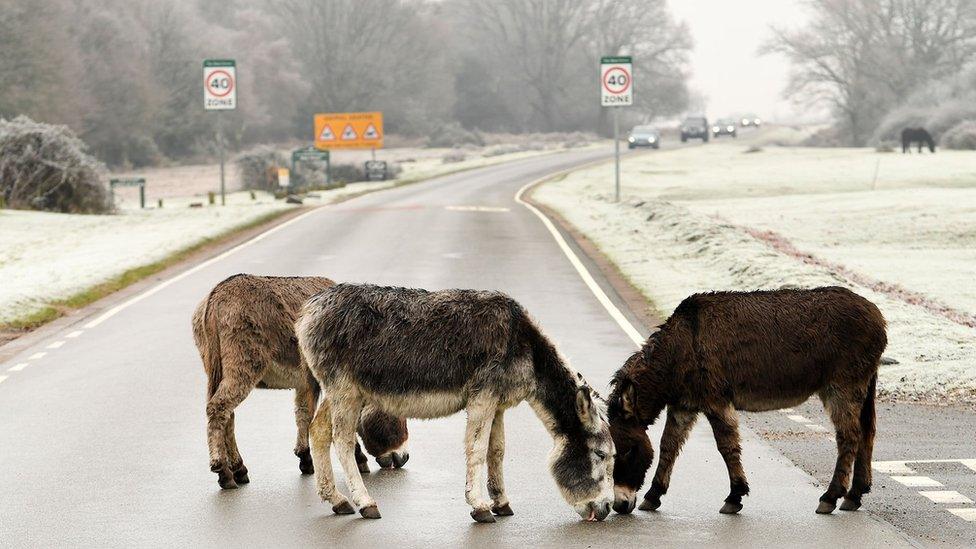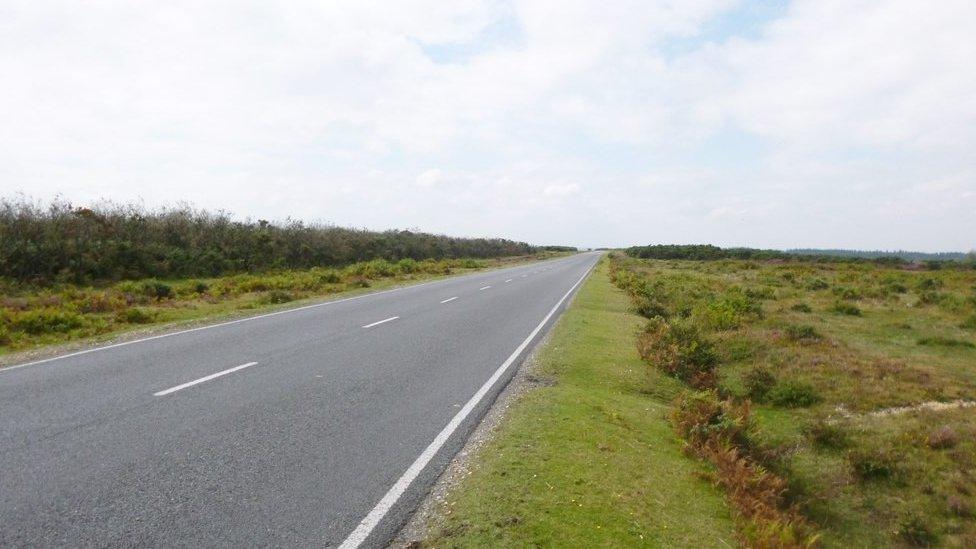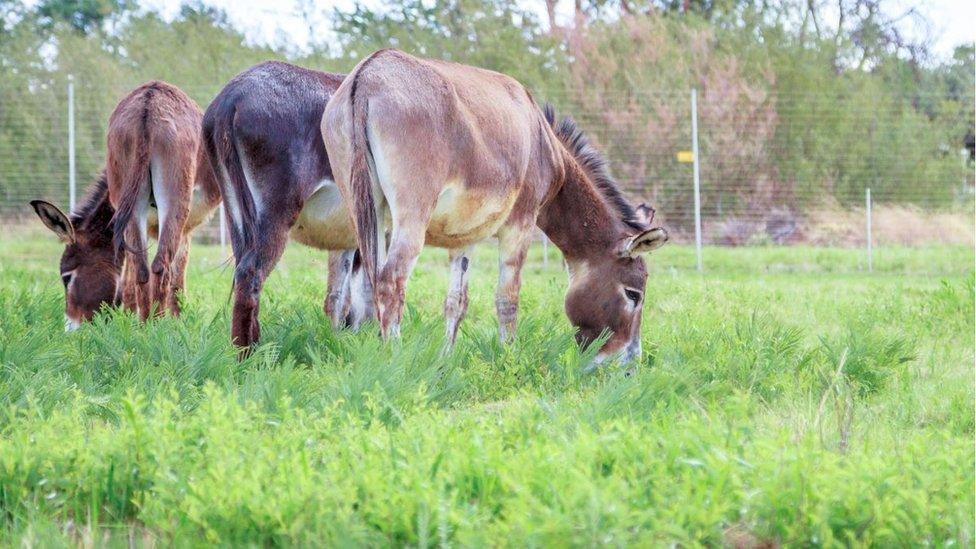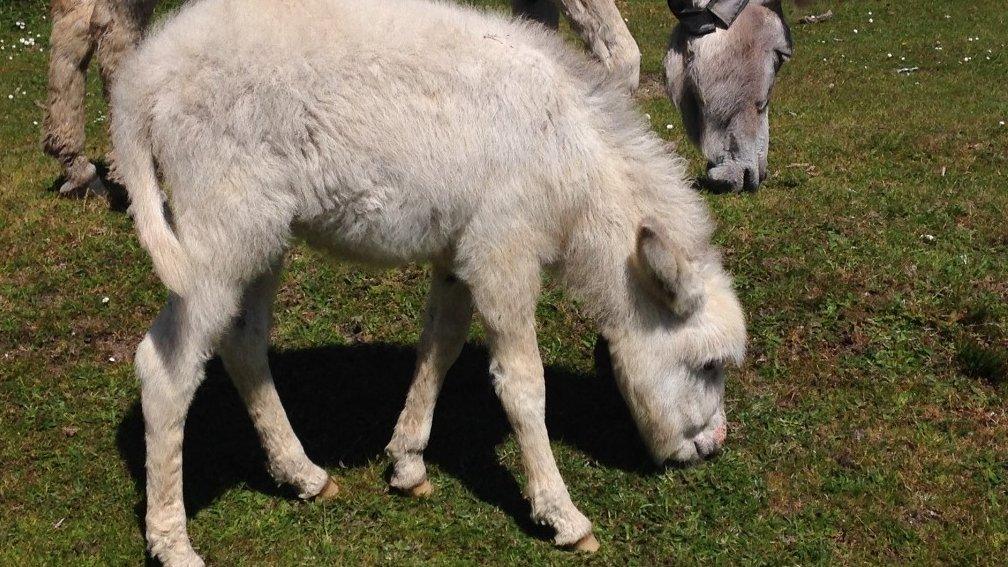New Forest animal deaths: Calls for average speed cameras
- Published

Animals are attracted to roads in the New Forest in winter as they lick salt off the surface
Average speed cameras could reduce the number of animals killed by vehicles in the New Forest, campaigners have said.
Four ponies and three donkeys were killed in two collisions in the national park last month.
Local councillor Edward Heron said installing average speed cameras on the Roger Penny Way blackspot was the "top solution".
Hampshire Constabulary said there was "no policing justification" to install number plate recognition technology.
Four ponies were hit on 31 December while licking freshly laid gritting salt on Roger Penny Way.
Three donkeys were killed on the same road, earlier in December.
'Drivers' responsibility'
The New Forest is one of the largest remaining areas of unenclosed land where commoners' cattle, ponies and donkeys roam throughout the open heath.
In 2019, 58 animals were killed and 32 were injured, according to the New Forest National Park Authority.
Gilly Jones, of New Forest Roads Awareness, said: "Drivers really have to take responsibility - it's about getting people to think about how they drive in the forest and not be complacent."
The group has set up a petition calling for the district council to back the installation of average speed cameras using number plate recognition.

Roger Penny Way is among the worst areas for animal deaths on New Forest roads
In recent years, publicity campaigns and new signs have urged drivers to reduce their speed.
Options such as roadside fences have been dismissed due to the need to protect the open landscape for grazing.
Mr Heron, who is also a member of the national park authority, said speeding on Roger Penny Way was a persistent issue.
"Large incidents get the publicity, but actually these deaths are happening month-by-month," he said.
He added: "I fully recognise that police's priority is to reduce human casualties, and they have limited resources, but working together we could find the resources to cut animal losses."
He admitted it would be "difficult and challenging" and the implications for the landscape would need to be considered, but added there was "always a balance and the technology is there".
Hampshire Constabulary said there was no evidence to suggest that either driver in the December collisions was speeding or driving carelessly.
In a statement, a spokesman said there was an "on going discussion" over average speed cameras, but "there is currently no policing justification or funding opportunity to support at this stage".
- Published13 December 2020

- Published5 December 2014
